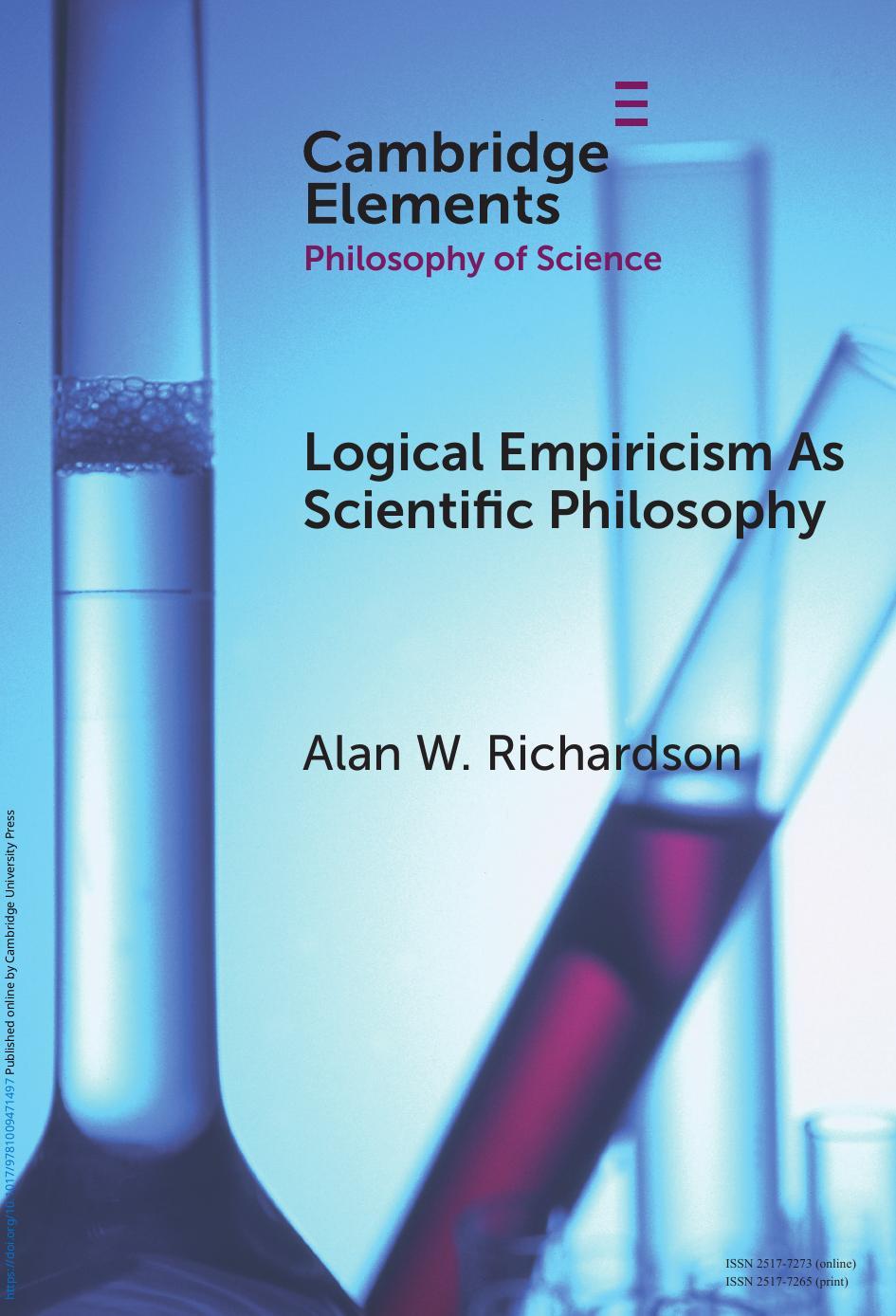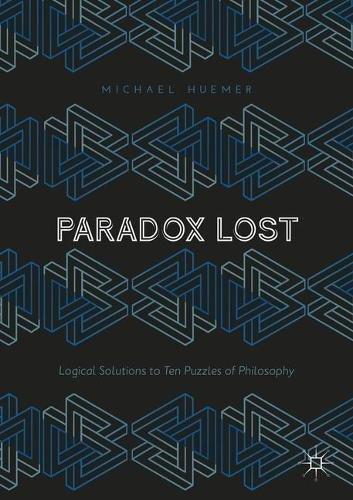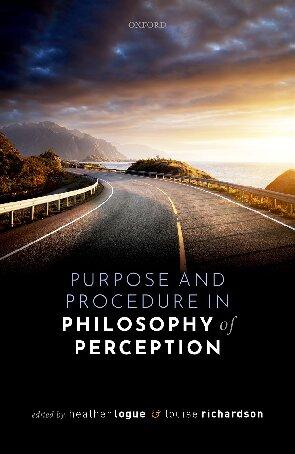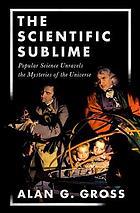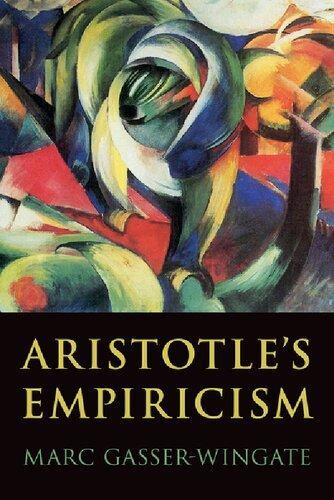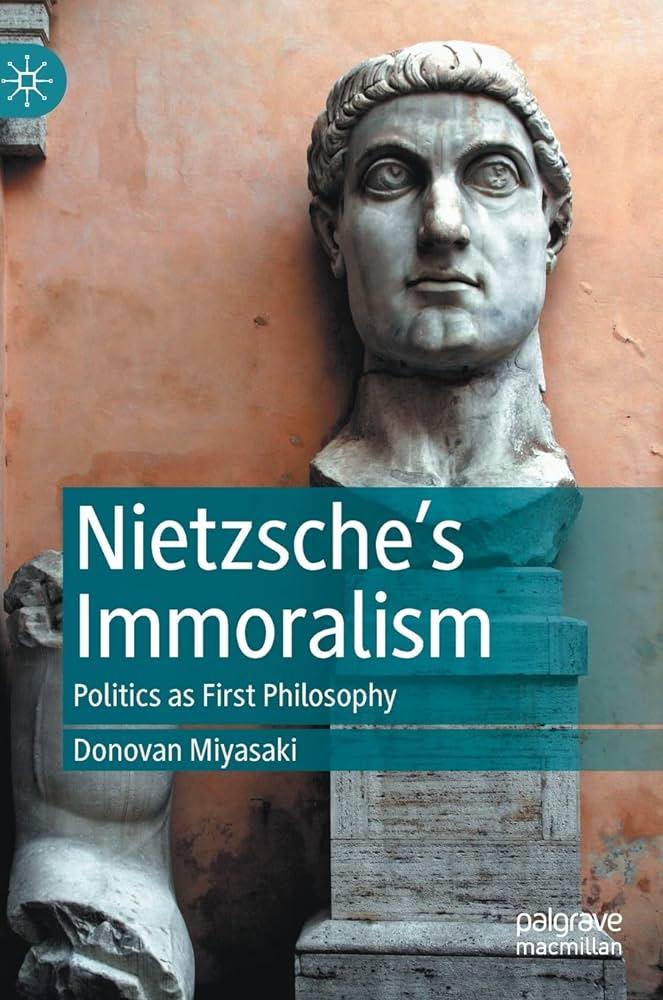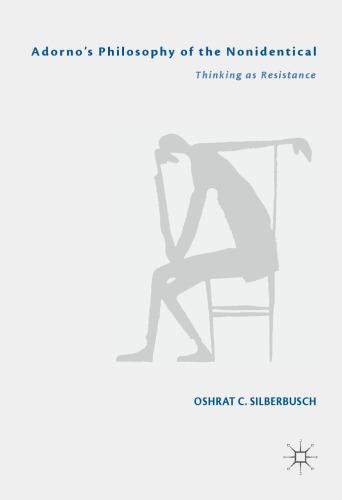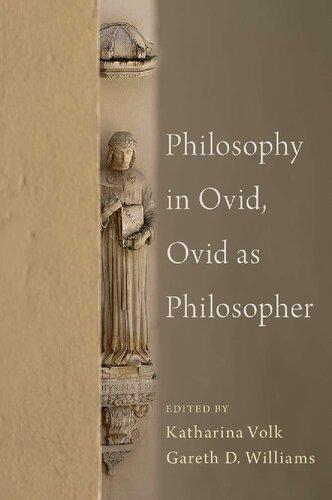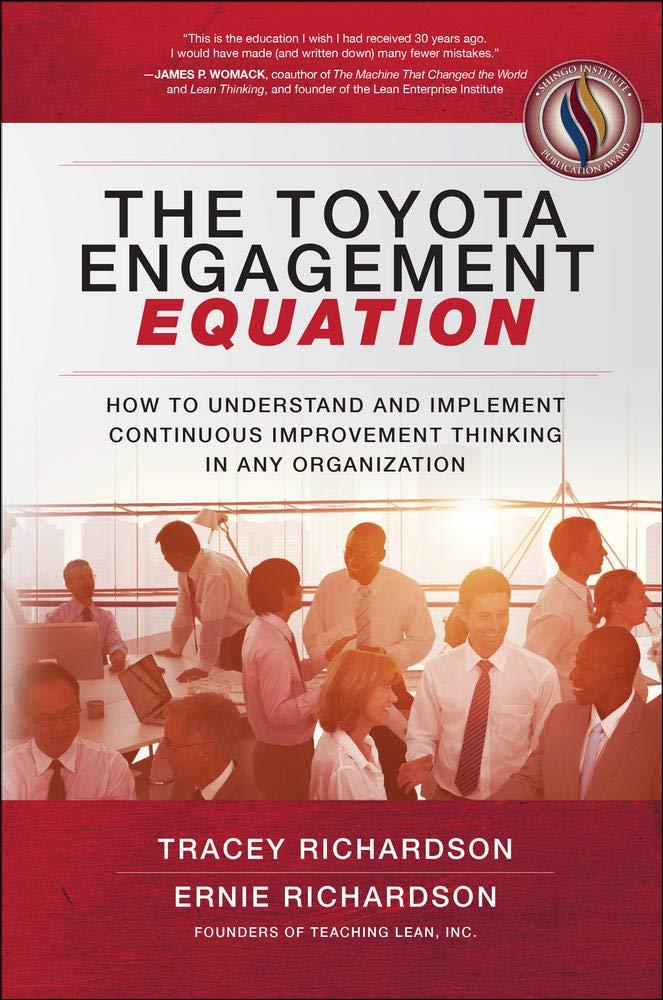ASSCIENTIFIC PHILOSOPHY
AlanW.Richardson
UniversityofBritishColumbia
ShaftesburyRoad,CambridgeCB28EA,UnitedKingdom OneLibertyPlaza,20thFloor,NewYork,NY10006,USA 477WilliamstownRoad,PortMelbourne,VIC3207,Australia
314–321,3rdFloor,Plot3,SplendorForum,JasolaDistrictCentre, NewDelhi – 110025,India
103PenangRoad,#05–06/07,VisioncrestCommercial,Singapore238467
CambridgeUniversityPressispartofCambridgeUniversityPress&Assessment, adepartmentoftheUniversityofCambridge.
WesharetheUniversity’smissiontocontributetosocietythroughthepursuitof education,learningandresearchatthehighestinternationallevelsofexcellence.
www.cambridge.org Informationonthistitle: www.cambridge.org/9781009471510
DOI: 10.1017/9781009471497
©AlanW.Richardson2023
Thispublicationisincopyright.Subjecttostatutoryexceptionandtotheprovisions ofrelevantcollectivelicensingagreements,noreproductionofanypartmaytake placewithoutthewrittenpermissionofCambridgeUniversityPress&Assessment.
Firstpublished2023
AcataloguerecordforthispublicationisavailablefromtheBritishLibrary
ISBN978-1-009-47151-0Hardback
ISBN978-1-009-47147-3Paperback
ISSN2517-7273(online)
ISSN2517-7265(print)
CambridgeUniversityPress&Assessmenthasnoresponsibilityforthepersistence oraccuracyofURLsforexternalorthird-partyinternetwebsitesreferredtointhis publicationanddoesnotguaranteethatanycontentonsuchwebsitesis,orwill remain,accurateorappropriate.
ElementsinPhilosophyofScience
DOI:10.1017/9781009471497
Firstpublishedonline:December2023
AlanW.Richardson UniversityofBritishColumbia
Authorforcorrespondence: AlanW.Richardson, Alan.richardson@ubc.ca
Abstract: ThisElementoffersanewaccountofthephilosophical significanceoflogicalempiricismthatreliesonthepastfortyyearsof literaturereassessingtheproject.Itarguesthatwhilelogicalempiricism wascommittedtoempiricismanddidbecometiedtothetrajectoryof analyticphilosophy,neitherempiricismnorlogicalanalysispersewas thedeepestphilosophicalcommitmentoflogicalempiricism.That commitmentwas,rather,securingthescientificstatusofphilosophy, bringingphilosophyintoascientificconceptionoftheworld.
Keywords: analyticphilosophy,empiricism,historyofphilosophyofscience, logicalempiricism,scientificphilosophy
©AlanW.Richardson2023
ISBNs:9781009471510(HB),9781009471473(PB),9781009471497(OC)
ISSNs:2517-7273(online),2517-7265(print)
LogicalEmpiricism:ReframingItsPhilosophicalSignificance
Logicalempiricismwasoneofthecentralprojectsinacademicphilosophyfrom roughlythelate1920stothe1960s.ItbeganinEurope,mostimportantlyin ViennaandBerlin,and,withtheriseoffascisminEurope,eventuallyreached itsmatureandmostinfluentialstateintheUnitedStatesofAmerica.The firstof thelogicalempiriciststoemigratefromEuropetotheUnitedStateswasHerbert Feiglin1931;hewasfollowedinthe1930sbymanyothers,includingGustav Bergmann,RudolfCarnap,PhilippFrank,CarlHempel,HansReichenbach, andEdgarZilsel.Logicalempiricismplayedalargeroleinshapingthecontours ofAmericanacademicphilosophy,especiallyafterWorldWarII.Logical empiricismwascentraltothedevelopmentofformallogic,metalogic,semanticsandphilosophyoflanguage,philosophyofscience,and(especiallyformal) epistemology.Itwasalsoimportantinthedevelopmentofnoncognitivismin ethics.Theriseand flourishingofanalyticphilosophyintheUnitedStates, Britain,andthenthroughouttheworlddependedupontheprominenceof logicalempiricism.Bythesametoken,sincethe1970s,ifnotbefore,analytic philosophyhasunderstooditselftohaveprogressedawayfromthedoctrines andtechniquesofphilosophyassociatedwithlogicalempiricism.Logical empiricismwasonceanimportantmovementwithinanalyticphilosophyand isnownolongeramovementinanalyticphilosophy(orelsewhere).
Thisone-paragraphsummationoflogicalempiricismisaboutasuncontroversialasanysetofclaimsabouttherecenthistoryofphilosophycanbe.Any reputablebook-lengthhistoryofanalyticphilosophycontainsatleastonechapter onlogicalempiricism.1 Logicalempiricismis,withinsuchhistories,associated withnewlogicaltechniquesfordoingphilosophyaswellaswithcertainfundamental,butultimatelynaïveandmistakenphilosophicaldoctrines – theverificationisttheoryofmeaning,therejectionofmetaphysics,thelinguisticdoctrineof logicaltruth,theclaimthatmathematicsandlogicarepurelyformaloranalytic, andperhapsafewothers.Thechaptersonlogicalempiricisminthesehistories typicallyhaveacommonstructure,then:theyshowtheoriginalrelationoflogical empiricismtootherfoundationalprojectsinanalyticphilosophyandwhythe doctrinesassociatedwithlogicalempiricismhaveaninitialattractionand,perhaps,plausibility,butthenprovidethedecisiveargumentsagainstthosedoctrines. Armedwithsuchargumentsagainstsuchdoctrines,ratherthanagainstawhole traditionofphilosophizing,analyticphilosophycontinuespastlogicalempiricism,absorbingbothitsusefultechnicaladvancesandtherejectionofitscentral doctrines.Thenextchaptersofthehistoriesoftengototheworkofthose
1 Thisframinghaspersistedformorethanhalfacentury;compare Passmore(1957), Stroll(2001), and Soames(2018).
associatedwiththeanti-logical–empiricistarguments,usuallyWillardvanOrman Quine,occasionallythelateLudwigWittgensteinorOxfordordinarylanguage philosophy.
ThisElementwilloutlineadifferentview.Theproblemisnotsomuchthatthe otherstoriesarewrong.Inarealsense,thestorieshavebecomeself-certifying:in virtueofbeingrepeatedformorethanhalfacenturythesestoriesgiveanaccount oflogicalempiricismanditslegacythatthevastmajorityoftrainedanalytic philosopherstakeforgranted.Theinfluencelogicalempiricismhashadfor acoupleofgenerationsislargelytheinfluenceassignedtoitbythesestories. Nonetheless,thestorieshavebeenreconsideredrecentlyfromavarietyofangles –thereisnowanenormousliteraturereevaluatinglogicalempiricism.2 Withinthis literature,forexample,ithasbeendisputedthatlogicalempiricismisaproject thatcanproperlybeconnectedtoafewcentraldoctrinessuchthat,shouldthese doctrinesberefuted,theprojectisdead;againstthis,ithasbeennotedthatseveral ofthecorelogicalempiricistsneveradoptedsomeoftheallegedcoredoctrinesor cametorejectthosedoctrineswhilestillthinkingofthemselvesaspursuingthe sameoverallphilosophicalproject.ThisElementwilldeploysomeofthecentral themesoftheliteraturereappraisinglogicalempiricismtoofferanewaccountof thesignificanceoflogicalempiricismfortwentieth-centuryphilosophy.This Elementwilltakeseriously(whilelackingspacetodetail)boththerangeof differentprojectsembeddedwithinlogicalempiricismandthewealthofmaterials thelogicalempiricistsdrewuponwithinthoseprojects.Butitwill,asitmust, delimitthescopeofitsinterestsandconcentrateonafewkey figuresandissues.
WhatIsLogicalEmpiricism?AFirstAccount
InordertoundertaketheprojectofthisElement,weofcourseneedtoknowthe referentandthemeaningoftheterm “logicalempiricism.” Wealsoneedtodraw outexplicitlythelargelyimplicitdefaultstoryoflogicalempiricismthatthose trainedinanalyticphilosophyimbibeinordertomotivateareappraisal. Inthematterofreference,mattersarerelativelystraightforward.Thegroups whoalignedthemselveswiththeprojectwerethemembersoftheViennaCircle andtheBerlinGroupassociatedwithHansReichenbach(MilkovandPeckhaus 2013).TheViennaCircleisamongthemostfamousgroupsofearlytwentiethcenturyphilosophers.Itsmembersalsodidthehistorianoflogicalempiricism thefavorofwritingamanifestoinwhichtheyexplainedtheirphilosophical viewsandpresentedtheirmembershipthisisthe Wissenschaftliche Weltauffassung (ScientificWorld-Conception)of1929andproducedseveral
2 Majorworksinthisreappraisalinclude Friedman(1999), Reisch(2005), Stadler(2015),and Uebel(2015).
participanthistories(Neurathetal.[1929]2012).3 Wewillgettothevisionof philosophyofferedinthemanifestoshortly.Herewewilldiscussbrieflythe membershipcirca1929.
Whatin1929announceditselfastheViennaCirclebeganmeetingin1922 whenthephysicist-turned-philosopherMoritzSchlickarrivedinViennato becomethefourthoccupantinthechairforphilosophyoftheinductivesciences,achairthathadbeenfoundedforErnstMachin1895.The1929 manifestowaswrittenincelebrationofSchlick’sdecisiontostayinVienna andthustocontinueasthecentral figurearoundwhomtheCirclewasorganized.TheprincipalauthorsofthemanifestowerethephilosopherRudolf Carnap,thesociologistandpoliticaleconomistOttoNeurath,andthemathematicianHansHahn(Uebel2012).Inadditiontothesefour figures,themanifesto liststenmembersoftheCircle:GustavBergmann,HerbertFeigl,PhilippFrank, KurtGödel,ViktorKraft,KarlMenger,MarcelNatkin,OlgaHahn-Neurath, TheodorRadakovic,andFriedrichWaismann.Thenumberofintellectualsin ViennawhowereassociatedwiththeCirclewasmuchlargerthanthis;Friedrich Stadler ’sdefinitivehistoryoftheCirclelistsabouttwentymore figureswho wereinsomewayandatsomepointaffiliatedwiththeCircle(Stadler2015).
Theauthorsofthemanifestoclaimedthattheirprojectwasaninternational movementandthuslistedagroupof figures “closetotheViennaCircle.” These includedtheBerlinersWalterDubislav,KurtGrelling,andHansReichenbach. TheyalsolistedseveralmoreViennesescholars:thearchitectJosefFrank (Philipp’sbrother),HeinrichLoewy,andEdgarZilsel.Roundingoutthis group,theylistedHassoHärlenofStuttgart,EnoKailaofFinland,Frank P.RamseyofCambridge,andKurtReidemeisterofKoenigsberg.Thepamphlet alsolistedAlbertEinstein,BertrandRussell,andLudwigWittgensteinasthe “leadingrepresentativesofthescientificworldconception.” Thisprovidesus withawideenoughrangeofpersonsandviews,althoughweneedtomakeone addition:in1929,Reichenbach’sstudentCarlHempelwastooyoungtobewell knowntotheVienneseauthorsofthemanifesto.Hewouldintimebecomeone ofthecentral figuresinAmericanlogicalempiricism,however.4
Inanimportantsense,logicalempiricismjustisthephilosophypresentedand exemplifiedbythese figures – atleastforsomeperiodoftheircareers.Thisis notordinarily,however,howwethinkofphilosophicalprojectsorschoolsof thought.Weusuallypresentthemascontent – wepresenttheirmethods,goals, andtenets.Thisishowthedefaultstoryoflogicalempiricismistold.Wecan
3 See,forexample, Joergenson(1951),theintroductionto Frank(1951),andthe firstfouressaysin Feigl(1981)
4 Hempel’sclassicessaysarereprintedin Hempel(1965);hisplaceinlogicalempiricismis outlinedin Friedman(2000b).
approachthetellingofthisstorythroughafewofthekeydocumentsinthe articulationoflogicalempiricism.
Beforewebegin,wemustdealwithaninitialcomplication.Theprojectthat cametobecalled “ logicalempiricism ” hadmanynames,evenifwerestrict ourattentiontothosewhoidenti fiedwithorendorsedtheproject.Withinthe Anglophonecontext,the fi rstnameassociatedwiththeprojectwas “ logical positivism, ” whichwasthetermchosenbythe youngAmericanrecruitAlbert BlumbergandFeiglintheir 1931 introductoryessay( BlumbergandFeigl 1931).Onlyaboutadecadelaterwasthattermroutinelydiscardedinfavorof “ logicalempiricism,” aslightvariationofaterm( “logisticempiricism ” ) introducedforanAnglophoneaudiencebyReichenbachinthemid-1930s (Reichenbach1936).Forsomeofthe figuresinthemovement,someofthe nameswereimportantlymoreaccuratethanothers;other fi gureswereindifferenttothequestionofnaming.Forsome(suchasNeurath),certainwords (suchas “ philosophy” )weredangerouslyvagueorambiguousandtobe avoided.Thechangeofnamesissometimesitselfmarshaledasanargument foradegeneratingtrajectory:arobustanti-metaphysicalpositivistproject becameanincreasinglydilutedprojectofempiricism.Iwillcontinuetouse “ logicalempiricism ” asmymainterm – thiswasthetermmostusedby adherentsastheprojectgainedprominenceintheAmericancontext.Butin thishistoricalsketch,wemustbeginwith “ logicalpositivism”– atermthat retainsastrongpresenceinthewideracademicworld,especiallyamong scientistsandamongthosecriticalofpositivism.
Asjustnoted,theterm “logicalpositivism” was firstusedinprinttodiscuss thephilosophyoftheViennaCirclein1931inanessayBlumbergandFeigl wroteforthe JournalofPhilosophy.BlumbergandFeiglintroducetheterm “logicalpositivism” withthefollowingwords: “Tofacilitatecriticismandto forestallevenmoreunfortunateattemptsatlabelingthisaspectofcontemporary Europeanphilosophy,weshallemploytheterm ‘logicalpositivism.’ Although itisperhapsthebestamongmanypoorones,thenamemaysuggestamere rephrasingoftraditionalpositivism.However,thisisnotthecase” (Blumberg andFeigl1931,pp.281–282).
Thetermwasmeanttodotwothings:summarizethemainfeaturesofthe philosophyonoffer,andsuggesttherelationsofthatphilosophytootherhistoricallygivenphilosophicalprojects,especiallypositivism.Moreover,Blumberg andFeiglareclearthattheterm,whilebetterthanotherstheycouldthinkof,was notreallyadequateforthepurposesforwhichitwasintroduced.Eachofthese aspectsofthetermdeservesatleastabitmoreelaboration.
The firstpointspeakstotheinnovationsoflogicalpositivismasBlumberg andFeiglpresentit.OneofthemostinterestingphenomenainrecentEuropean
philosophywas,theyargued,theconvergenceoftwosignificanttraditions:the positivistic-empiricalandthelogical.ComparableinimportancetotheKantian synthesisofrationalismandempiricism,thisnewmovementwassharply distinguishedfromKantianismbothbyitsresultsandbythefactthatit embodiesnottheworkofanindividual,buttheagreementofnumerouslogicians,philosophers,andscientistswhoindependentlyarrivedattheposition.
Giventhisinterpretativeframework,theauthorsgoontoarguethatthe epistemologyofempiricalknowledge,especiallyempiricalscience,hasbeen thepurviewofempiricistepistemology,butthisprojecthastraditionallyunderestimatedandmisunderstoodthenatureandimportanceoflogicalandmathematicalknowledge.Rationalismhasbeenbetteratexplainingmathematicaland logicalknowledgebuthastraditionallyunderestimatedandmisunderstoodthe natureandimportanceofempiricalknowledge.Theirlogicalpositivismwasthe attempt,inspiredbyrevolutionarynewadvancesintheformalsciencesandin theunderstandingofthemethodologyofexactphysicalscience,torecombinein anon-Kantianwaytheinsightsofrationalismandempiricismandtounderstand theroleoftheformalsciencesinempiricalknowledge.Thus,theaccountatonce paidhomagetothesignificanceofKant’sphilosophicalambitionsandacknowledgedthefailureofKant’sprojectadequatelytofulfillthoseambitions.
Thechoiceoftheterm “logicalpositivism” expressedboththesynthetic elementoftheprojectandaphilosophicalandhistoricalconnectiontothe projectofnineteenth-centurypositivism.The “traditional ” Machianpositivism towardwhichthepassagejustquotedgestureswas,crudely,anattemptto provideagenerallyempiricistexperientialfoundationtoempiricalscientific knowledgeandtoreject,asbeyondourexperientialken,theclaimsofmetaphysics.Thus,aMachianpositivistwouldattempttoexplainthenatureof,say, knowledgeofthephysicalworldthroughattentiontohowphysicalconcepts (suchasforceormassorenergy)organizethecontentofexperiencewhile claimingthatnotionssuchascauseoressenceoridealvaluegobeyondwhatwe canexperienceandthusshouldberejected.Logic,withintheprojectBlumberg andFeigloffer,willprovidethepurelyformalframeworkwithinwhichto expresstherelationsofscientificclaimstoexperience.Moreover,thetechniquesofdefinitionwithinmodernformallogicprovide, finally,apreciseand generalinstrumenttomakeexactthenegativeclaimaboutmetaphysics.By showingthattheallegedclaimsofmetaphysicscontainconceptsthatcannotbe definedonthebasisofexperience,logiccanshowexactlywhysuchclaims shouldberejected:theyarenotrejectedbecausetheyarefalseorsubjectiveor dangerousbutbecausetheyare,strictlyspeaking,meaningless.
Logicthusatonceallowslogicalpositivismtoconnecttheirtechnicalconcerns totraditionalrationalism(whilerejectingthesyntheticapriori),fulfilltheproject
ofempiricistepistemology,clarifyanddischargetheanti-metaphysicaltasksof positivism,andoccupyapositionwithinphilosophyreminiscentofthatclaimed byKant.Italsodoesmorethanthat.For,astheauthorsthendetail,logicand mathematicsbothsetandsolveanepistemologicalproblemwithinmodern physicalmethodologythatnoneofthepreviousprojectscouldevenexpress (BlumbergandFeigl1931,pp.288ff).Asimplifiedversionoftheissuecanbe presentedwithinthecontextofthequestionofwhetherphysicalspaceis Euclideanornon-Euclidean,atopicofsignificantimporttologicalpositivism duetoitscentralityinthehistoryofrelativisticphysics.5
Euclideangeometrydiffersfromitsnon-Euclideanalternativesinmany ways;importantlyforourquestion,thesegeometriesdifferintheirtheorems aboutpropertiessuchastheangle-sumpropertyfortrianglesandtheratio betweentheradiusofacircleanditscircumference.So,forexample,in Euclidean(flat)geometry,alltriangleshaveanglesthatsumtoastraight angleor180degrees.Innon-Euclideangeometriesofconstantnegativecurvature,alltriangleshaveanglesthatsumtolessthan180degrees,andthe differencebetweenthesumand180degreesincreaseswiththesizeofthe triangle.Non-Euclideangeometriesofconstantpositivecurvaturehaveangles thatsumtomorethan180degrees,andthedifferencebetweenthesumand180 degreesincreaseswiththesizeofthetriangle.Thissuggestsanempiricaltest regardingthegeometryofphysicalspace:givenabigenoughtriangle,we shouldbeabletodiscernwhethertheanglessumto180degreesorlessor morethanthat.ThegreatGermanmathematicianChristianGaussundertook suchmeasurementsusinglightbeamedfrommountaintopsanddiscernedno divergencefromEuclideanstructure.
Logicalpositivismasksforphilosophicalcaretobetakenatjustthispoint. Measuringtheanglesbetweenlightbeamshelpsusdeterminetheangle-sum propertyforphysicaltrianglesonlyiflighttravelsinstraightlines.Howcanyou determinethis?Youcouldseeiflightcanbebeamedalongtheedgeof astraightedge.Butthisagainpresumesthatthestraightedgeisstraight,and howdoyoudeterminethat?Eventually,saythelogicalpositivists,buildingon theirunderstandingoftheworkofEinsteinandHenri Poincaré([1902]2017), yougettoapointwhereyoucannotempiricallycheckforphysicalstraightness butrathermustmakeaconventionalchoiceaboutwhatyouaregoingtocountas straight.WithintheparlanceemployedbyBlumbergandFeigl,whichtheytook fromtheworkofReichenbach,thescientistmustmakeaconventionalchoiceof
5 Themethodologyofphysicsandthestructureofphysicalspaceasunderstoodbythelogical empiricistsinEinstein’swakeisahugetopic.Keytextsinclude Schlick([1919]1963), Reichenbach([1920]1965, [1928]1958),and Carnap([1922]2019).Seealso Friedman(1983, chapter1)and Ryckman(2005).
anaxiomordefinitionofcoordination(BlumbergandFeigl1931,p.289).Whatis coordinatedis,ontheonehand,analreadywell-definedmathematicalconceptor structure(straightestpossibleline,intheexample)and,ontheother,experientiallyavailableprocessesinthephysicalworld(forexample,thepathofalightray orastraightedge).Gauss,forexample,insteadofpresumingthatlighttravelsin straightlines,shouldhavesaidsomethinglike “Iherebychoose ‘pathofalight ray’ tobewhat ‘physicallystraightline’ means.” Onceyouhavedonethatyou haveawaytocoordinatetheexperimentalresultwiththetheoremsofthevarious geometries,andonlythencanyoutakeyourselftobetestingthosegeometries againstfactsgiveninexperienceatall.
Intheexample,thecoordinationisbetweenaspecificgeometricalconcept –astraightline – andaparticularphysicalprocess – thepathoflightrays.The coordinationcould,however,bemoreglobal;onecoulddecide,forexample,that Euclideangeometryisthesimplesttoworkwithand,thus,thatyouwishtouseit. YouhavetherebyconventionallychosenaEuclideanstructureforspace.Any complicationsarisingfromthisdecisioncouldbepushedintomoreandmore complicatedphysics.Theremightbelimitsonhowfaryouwouldwanttogointhis direction – Einsteinhimselfobjectedtogravityconceivedofasauniversalforce, preferringtoaltertheunderlyingspace-timegeometry.Similarly,certaincircumstancesmightrequireviolationsofcausalconnectionifaEuclideanspace(-time)is chosen.Butheretootherearemethodologicaltrade-offsonly,notdemandsoffered totheverynatureofexperience,reason,orscience.Thereisneverasimple empiricalrefutationofanassertionabout themetricalgeometryofspace(-time).
Itisthenoveltyofthissortofepistemologicalproblem – onenotknownto classicalempiricismornineteenth-centurypositivism – thatexplainstheunhappinessBlumbergandFeiglhavewiththeirownchosenmoniker, “logicalpositivism.” Logicalpositivismwasaphilosophyofscientificknowledgeasdevelopedin closecontactwithrevolutionarydevelopmentsintheexactsciencesandtheissues raisedwerenotthesameastheepistemologicalproblemscentraltotheprojectsof traditionalphilosophyofanystripe.Rather,themostpreciseaccountsofthe epistemologicalproblemanditssolutionweretobefoundinthemethodological andscientificworkoftheexactscientiststhemselves,especiallyintheworkof EinsteinandPoincaré.Thename “logicalpositivism” wasadecidedlybackwardlookingname – anamethatplacedlogicalpositivisminanhistoricaldevelopment ofphilosophy – butthephilosophyespousedwaspresentedasrevolutionary,as importantlyunprecedented,asdependentonclarificationsofthefoundationsof knowledgerevealedinthethen-contemporaryrevolutionsinexactscience.
Theexampleofconventionalismingeometrygivesa flavoroftherevolutionaryaspectofthescientificcontextwithinwhichthelogicalempiricistswere working,butitsurelydoesnotprovideanythingapproachingasynopticvision.
Eveninphysics,therewereotherimportantelementstotheirinterestsinthe contentandmethodologyofnewtheories – questionsofcausationanddeterminisminquantummechanics,themethodsofmetrologyandoperationalism, thequestionsofwhatcounts,afterthegeneraltheoryofrelativity,asgiving aproperlyunifiedaccountofphysicalforces,andmuchmore.Moreover,they werealsointerestedintherevolutionarychangesinmathematicallogicandthe conceptionsofrigorousfoundationsofanalysisaswellasinarguablyrevolutionarychangesinsocialscienceandpsychologyintheworkofMaxWeber,the behaviorists,andtheGestaltpsychologists.Revolutioninscienceand,forsome ofthem,suchasNeurath,alsoinpolitics,wasverymuchintheair.
Thisrevolutionaryvisionoflogicalempiricismistobefoundnotonlyinthis introductoryworkbyBlumbergandFeigl – suchrhetoricaboundsinthe literatureoflogicalempiricismofthetime.Itisevidentintheaforementioned 1929publicannouncementoftheViennaCircle, Wissenschaftliche Weltauffassung.Inthiswork,theauthorsclaimedthatitsphilosophicalwork wasrevolutionarynotmerelyinthedetailsoftheepistemologicalproblemthat ittakesup,butalsoinitsentiremodeofphilosophicalinquiry,amodethat bringsphilosophy finallyintothemodernworldandtiesittoothersocially progressiveintellectualandpracticalmovements.Therevolutionarynewphilosophyespousedtakesitsplacewithinscience,notbeyondit,anditservesnot tolimitthepossibilitiesofscientificknowledge,buttofosterthem:
Thereisnosuchthingasphilosophyasabasicoruniversalsciencealongside orabovethevarious fieldsoftheoneempiricalscience;thereisnopathto genuineknowledgeotherthanthepathofexperience;thereisnorealmof ideasthatstandsoverorbeyondexperience.Nevertheless,theworkof “philosophical” or “foundational” investigationsinthespiritofthescientific world-conceptionremainsimportant.Forthelogicalclarificationofscientific concepts,propositions,andmethodsliberatesonefrominhibitingprejudices. Logicalandepistemologicalanalysisbynomeanswantstosetlimitscientific inquiry;onthecontrary,analysisprovidessciencewithascompletearangeof formalpossibilitiesasispossible,fromwhichtoselectwhatbest fitseach empirical finding(example:non-Euclideangeometriesandthetheoryof relativity).(Neurathetal.[1929]2012,p.89;emphasisintheoriginal)
EvenSchlick,amorepersonallyandpoliticallyconservativepersonthan mostofthelogicalempiricists,couldnotatthistimecontainhisrevolutionary rhetoric.Hewasgiventhe firstwordinthelogicalempiricisthousejournal, Erkenntnis,in1930andchoseforthetitleofhispiece “DieWendeder Philosophie” (“TheTurningPointinPhilosophy”; Schlick([1930]1959).He placedhisremarkswithinthecontextofageneralconcernabouttheobjectivity andprogressofphilosophy,notingthatmanycommentatorsonthehistoryof
philosophyhavefounditlittlemorethanaconflictofsystemsofferedby individualphilosophersandelaboratedbyschoolsdevotedtothosephilosophers.Intheessay,hecitesamethodologicaladvanceasthereasonphilosophycirca1930isabletoturnawayfromsuchafruitlessconflictofsystems:
Iamconvincedthatwenow findourselvesatanaltogetherdecisiveturning pointinphilosophy,andthatweareobjectivelyjustifiedinconsideringthat anendhascometothefruitlessconflictofsystems.Wearealreadyatthe presenttime,inmyopinion,inpossessionofmethodswhichmakeeverysuch conflictinprincipleunnecessary.Whatisnowrequiredistheirresolute application.(Schlick[1930]1959,p.54)
Thisadvancehadtwoparts:thetechnicaladvancesofformallogicandthe epistemologicaladvanceintheunderstandingofthenatureoflogicaltruth. Regardingthelatter,Schlickarguedthatonceweunderstandlogical(and mathematical)truthaspurelyformal,wecanseethatitisnotabranchof sciencewithitsownspecialsubjectmatterbutratherapurelyformaldiscipline thatpresentsframeworkswithinwhichanyknowledgeofanysubjectcanand mustbecouched.Thephilosophyoflogicalempiricismissimplytheprecise elaborationoflogicalsystemsforscience.
Basedonthisexposition,wearenowinapositiontounderstandsomeofthe coredoctrinesoflogicalempiricism,ifnotintheirfulltechnicaldetail,thenin theirphilosophicalmotivations.Consider,forexample,theircommitmenttothere beingadifferenceinprinciplebetweenthenatureoflogico-mathematicaltruth andempiricaltruth.Thiscommitmentisembeddedintheconventionaliststory. Thatstorybeginswiththevarioussystemsofmetricalgeometryhavingbeenfully developedasmathematicalsystems.Forexample,whataEuclideanstraightline orageodesicinageometryofconstantnegativecurvatureis,iswhollyamatterof mathematicaldefinition.Theabilityofconsistentaxiomsystemsinmathematics topickoutstructuresthatfulfillthemisnotinquestion;itistakenforgranted.The questionaskedishowthesemathematicalstructuresarebroughttobearonthe worldofmattersoffactofexperienceinordertorenderpossibleaprecise, predictive,mathematizedknowledgeofnature.Butitisnotjustthetruthsof logicandmathematicsthathavethisstatusofnothavingeithertruthmakersinor confirmedbyexperience.Also,theconventionsthatconnectthemathematicsto theworldofexperiencealsohavethisepistemologicalstatus;theconventionsare, intheverynatureofthecase,notempiricallygroundedbutchosen.Theycanturn outtobesimpleordifficulttoworkwith,buttheycannotbeconfirmedor falsified.Itisafurtherelaborationofthisideathatledtothedistinctionbetween analyticandsyntheticsentenceswithinlogicallyformalizedlanguages,whichis howthedistinctionbetweenlogico-mathematicaltruth,ontheonehand,and
empiricaltruth,ontheother,ultimatelyisanalyzedinlogicalempiricismbeginningaround1930.Theanalytic/syntheticdistinctionisawaytomakelogically precisetheinformalepistemologyonwhichtheconventionalistmethodology relies.6
Amongthereasonstowishtoconverttheinformalepistemologyofconventionalismintoarigorousdistinctionoflogicalandmethodologicalclaimswithin sciencewasageneraldistrustthelogicalempiricistshadaboutphilosophical vocabulary.Thisattitudeismostprominentlydisplayedintheireffortstoshow thatmetaphysicalclaimsaremeaningless.Howmightoneinarigorousfashion showthatanallegedlymeaningfulconcept(say,causeoressence)ismeaningless?Oneideawouldbethis:beginwithalanguageadequateforthedescription ofexperience,usethetechniquesofformallogic(already,aswehaveseen,shown tobeanalytic,meaningfulbutmakingnoclaimsabouttheworldofexperience)to showhowallotherempiricalconceptscanbedefinedfromtheprimitivetermsof thatdescription.Thisisonewaytoexpresstheverificationisttheoryofempirical orcognitivemeaningfulness:allempiricalconceptsaredefinableinalanguageof pureexperiencesothatanyempiricalclaimcanbetranslatedintoalogically complicatedstatementinthatlanguage.7 Allstatementsofmetaphysicscanthen beshowntobeempiricallymeaninglessbyshowingthattheycontainconcepts undefinableinthelanguageofexperience.Theclaimsofmetaphysicsdefyany efforttoregimentintoasystemofaxiomsconnectedbydefinitiontoexperience. Nor,ofcourse,dothemetaphysiciansthinkthattheyaredoingmerelyformal workwithconcepts – theyinsistthattheyaremakingsubstantivestatements abouttheworld;metaphysicsisnotabranchofmathematics.Thelogical empiricistsrespondtothissituationasfollows:werespecttheintentionthat metaphysicsbeasubstantivedisciplinebutasfaraswecantell,giventhefailure to findaconsistentsetofdefinitionsthattiesuchconceptstoexperience, metaphysiciansdonotsucceedinactuallymakingstatementsabouttheworld. Weeliminatemetaphysicsinthisway;inordertoavoideliminatingepistemology orphilosophyofsciencealongwithmetaphysics,itmustbeshownhowto regimenttheheretoforeinformalconceptsofepistemologyormethodologyof scienceintologicallypreciseconcepts.Whatisnotunclearabouttheapriorior theconventionaliscapturedintheformaldefinitionofanalyticityforalanguage ofscience.ThisisCarnap’sprojectinthelogicofscience.8
6 Wewillreturntothisdistinctionanditscriticsinthesection “LogicalEmpiricistScientific Philosophy,” wherereferencestorelevantliteraturearealsoprovided.
7 Perhapsnosingleissueinlogicalempiricismhasgeneratedasmuchliteratureasverificationism. Recentcontextualdiscussionsinclude Uebel(2015) and Verhaegh(2020)
8 Carnap’s firstrigorousattemptatalogicofscienceis Carnap([1934]1937);heprovidedamore elementaryaccountin Carnap(1935).
TheReceivedSignificanceofLogicalEmpiricism
Nostoryworthtellingisastorysimplyofaprojectthatwasborn,developed, andwassuperseded.Iflogicalempiricismisworthcaringabout,theremustbe someaccountofthesignificanceofit.Themostsalientstoriesofthesignificanceoflogicalempiricismhaveframedthatsignificanceasapartofthe developmentoftheprojectofempiricism,ontheonehand,oranalyticphilosophy,ontheother.Oftenthetwoframesarecombined.
Thisframingofthesignificanceoflogicalempiricismisduelargelytothe logicalempiriciststhemselves.WehavealreadyseenthatBlumbergandFeigl presentedlogicalempiricism(their “logicalpositivism”)asaprojectthat combinedempiricismwithacommitmenttoaformalistaccountoflogical andmathematicaltruth.Evenearlier,theViennaCircleexplainedtheirphilosophicalworkinsimilarways.Alreadyin1929,inthe Wissenschaftliche Weltauffassung,Neurath,Carnap,andHahnexplainedtheirphilosophical pointofviewthisway:
Wehavecharacterizedthe scientificworld-conception essentiallyby two features First itis empiricistandpositivist: thereisknowledgeonlyfrom experience,whichrestsonwhatisimmediatelygiven.Thissetsthelimitsfor thecontentoflegitimatescience. Second,thescientificworld-conceptionis markedbytheapplicationofacertainmethod,namelythatof logicalanalysis. Theaimofscientificworkistoreachthegoal,unifiedscience,byapplying logicalanalysistotheempiricalmaterial.(Neurathetal.[1929]2012,p.84)
Themostdiligentframerofthehistoryoflogicalempiricismwithinthe historyofempiricismis,however,perhapslogicalempiricism’smostfamous critic,Quine.MuchofQuine’sworkhasadistinctivelyhistoricalcasttoitand throughoutthatworkheisatpainstolocatelogicalempiricism – especially Carnap’slogicalempiricism – withinthelargerprojectofempiricismtoutcourt. Thus,forexample,Quine’s “FiveMilestonesofEmpiricism” presentsan entirelyinternalhistoryofempiricism,startingfromLockeandendingwith Quinehimself(Quine1981).Alongtheway,thephilosophyoftheVienna Circleispresentedwithinthesecondmilestoneofempiricism,themovefrom concernwiththemeaningsofwordstothemeaningsofsentences.Evenmore crucialthanthepositiveplaceforlogicalempiricisminQuine’sstoryisthe negativeplaceforit.EachofthelastthreeofQuine’smilestonesofempiricism areaspectsofhisownrepudiationofCarnap:holism(themoveofsemantic concernfromsentencestosystemsofsentences),monism(therepudiationof theanalytic/syntheticdistinction),andnaturalism.
ThesignificanceofCarnap’sphilosophyis,throughoutQuine’swork,understoodasaparticularkindofefforttoemploylogicintheserviceofstringently
empiricistepistemologicalgoals.ThisisperhapsmostevidentinQuine’s accountof “Viennesephilosophy” intheopeningparagraphsofhisessay “CarnapandLogicalTruth” (Quine1963).ThereQuineclaimsthatoneembarrassmentforhistoricalempiricismwasmathematics,whichseemedtohave bothacertaintyandadistancefromexperiencethattraditionalempiricism couldnotcountenance.Thisempiricistpuzzleaboutmathematicswasprecisely theproblemtheViennaCircleproposedtosolvethroughanewaccountofthe natureoflogicalandmathematicaltruth.Quineexplainsasfollows:
Whatnowoftheempiricistwhowouldgrantcertaintytologic,andtothe wholeofthemathematics,andyetwouldmakeacleansweepofothernonempiricaltheoriesunderthenameofmetaphysics?TheViennesesolutionto thisniceproblemwaspredicatedonlanguage.Metaphysicswasmeaningless throughmisuseoflanguage;logicwascertainthroughtautologoususeof language.(Quine1963,p.386)
Quinecallstheideathatlogicaltruthsaretrueinvirtueofthemeaningsofterms “thelinguisticdoctrineoflogicaltruth.” Throughouttheessay,herepresentsthe doctrineasan “epistemologicaldoctrine”– adoctrineinanempiricistepistemologyoflogic.
ThisunderstandingoflogicalempiricismistheframeworkalsoforQuine’s mostfamousessay, “TwoDogmasofEmpiricism,” inwhichtheanalytic/ syntheticdistinctionispresentedasoneofthedogmasoffoundationalist empiricism(Quine1951).Moreover,Quineanholismanditsconsequences, monismandnaturalism,arealso,inQuine’saccount,intheserviceofempiricism.Quine’sisofcourseade-dogmatizedempiricism.Nolongerdoesthe empiricistphilosopherfeelembarrassedbymathematics,whichisnowrecognizednotasaprioriatall,butmerelyasatquitealargeremovefromexperience. ThereisnolongerinQuineanempiricismadistinctiveclassofanalyticsentencesthatachievetheirtruthinauniquelynonempiricalway.Indeed,asQuine presentsit,monismfollowsfromempiricismdirectlyonceamoderateholism regardingtheorytestingisaccepted.Empiricismassignstosentencesonlytheir empiricalconsequencesastheirmeanings,butholismremindsusthatno sentencebyitselfhasanysignificantempiricalconsequences.Thus,thereis nothingtoassignasthemeaningofanindividualsentence.Theempirical significanceofalargeenoughchunkoftheorycanstillbegiven;whatcannot bedoneistodivvyupthatsignificancesentencebysentenceinordertoarriveat theempiricalmeaningofeachindividualclaim.Thus,sinceanalyticsentences weresupposedtodifferfromsyntheticsentencesinhavingnoempiricalmeaning,ourconclusion(noassignableempiricalmeaningforanysentence)givesus nowaytodelimittheclassofanalyticsentences.
WhilethelargestfeatureofQuine’saccountoflogicalempiricismisitsplace withinthehistoryofempiricism,anotherhistoricalnarrativeisalsoinplayin Quine’swork.Quinepresentsanempiricistepistemologyattheheartofanalytic philosophy.Thus,onQuine’sview,Carnap’sempiricistepistemologicalproject inhis1928 DerlogischeAufbauderWelt (Carnap[1928]1961a)derivesfrom theempiricistepistemologyofBertrandRussell’sExternalWorldProgram: “To accountfortheexternalworldasalogicalconstructofsensedata – such,in Russell’stermswastheprogram.ItwasCarnap,inhis DerlogischeAufbauder Welt of1928,whocameclosesttoexecutingit” (Quine1969,p.74).More generally,Quineassimilates,inhis “FiveMilestones,” thelogicalandsemanticaldoctrinesofFrege,Russell,andWittgenstein,totheepistemological projectofempiricism.Thus,Quineinvitesustoreadlogicalempiricismasan episodealsointhehistoryofanalyticphilosophy.ItisjustthatQuine’sanalytic philosophyiscontinuouswithanempiricistepistemologicaltraditionthatwent rightbackintotheseventeenthcentury.
RethinkingtheSignificanceofLogicalEmpiricism
Sofar,withveryfewexceptions,Ihaveusedthephrase “logicalempiricism” in thesingular,andsurelylogicalempiricismhassomeformofunity.Butthe recentinterpretativeliteraturehasarguedthatonewayinwhichthestandard storyisimpoverishedisthattakeslogicalempiricismtobeavastlymore monolithicprojectthanitactuallywas.Thestandardhistory,implicitlyor explicitly,makesCarnapthecentral figureinlogicalempiricism.Carnapis clearlythemaintargetofQuine’scriticisms.SometimesQuineseemstoinvite hisreaderstoequatelogicalempiricismwithCarnap’sphilosophy.When,for example,thefailureoftheanalytic/syntheticdistinctiontodosomeepistemologicalworkistakenasarefutationofalloflogicalempiricism,crucial differencesbetweenCarnap’sandtheotherlogicalempiricistprojectsare oftenelided.Partiallyinresponsetothisproblemofinterpretationandpartially simplytorecoverinterestingphilosophicalvoices,therehasarisenaliterature thatseekstoemphasizeotherversionsoflogicalempiricism,oftenarguingthat thoseversionsdonotsufferfromthesamephilosophicalproblemsthatthe Carnapianversiondoes.
Withinthisliteratureofrecovery,Neurath’slogicalempiricismisoftengiven prideofplace.9 Quineofferednaturalismasthereplacementprojectwithin empiricismforCarnapianformalism;Neurathisofimmediateinterestfor Quine’sstory,then,becauseheofferedanaturalisticversionoflogical
9 See,amongothers, Nemeth(1981), Haller(1993), Cartwightetal.(1996), Reisch(2005), Uebel (2015), CatandTuboly(2019).
empiricismrightbackintothe1920s.Moreover,Quineknewthisandchoseone versionofNeurath’sfamousboatmetaphorasthemottoofhis WordandObject (Quine1960).Thisraisesinterestingquestionsabouthowonecanbeboth anaturalistandalogicalempiricist – Neurathseemsnotevertohaveendorsed thetwodogmasofempiricismthatarethekeytoovercominglogicalempiricism.ThereintroductionintohistoricalconsciousnessofNeurath’sproject cannothelpbutcomplicatethestandardhistoryoflogicalempiricism.
Neurathisinterestinginother,notunrelated,waysalsoincomplicatingthe standardhistoryoflogicalempiricism.Neurathwasasocialscientistandbothhis senseofscienceandhismainareasofinterestinphilosophyofsciencestemmed fromhistraininginpoliticaleconomyandsociology.Healsowasascholarof history,includinghistoryofscience.Hewrotepapersinhistoryofeconomicsand historyofphysics.Neurathwasalsoadeeplypoliticallyengagedandexplicitly Austro-Marxistthinkerandactor.NeurathclashedwithbothCarnapandSchlick ontheevidentiaryroleofexperienceandthefoundationsofempiricalknowledge intheprotocolsentencedebate.Thus,theaimsandthemethodsofNeurath’s logicalempiricismdonotseemthesameasthosewehavecometoassociatewith defaultlogicalempiricism.ThisdifferencebetweenNeurath’sandmoretechnical logicalempiricismsisthematizedalreadyinthe1929manifesto:
Thescientificworld-conceptionisclosetothelifeofthepresent.Certainlyit willfacehardbattlesandhostility ... Ofcoursenoteverysingleadherentof thescientificworld-conceptionwillbea fighter.Some,gladofsolitude,will leadawithdrawnexistenceontheicyslopesoflogic;somemayevendisdain minglingwiththemassesandregretthe “trivialization ” whichisinevitable whenpopularizing.(Neurathetal.[1929]2012,p.90)
Itwouldseem,therefore,iflogicalempiricismistoaccommodatebothCarnap andNeurath,itwillhavetobeafairlybroad-churchmovement,notoneeasily codifiedintoafewsharedphilosophicaldoctrinesandmethods.Again,notonly doesNeurathcomplicatethepictureforthehistorian,hethematizesthiscomplicationinhisownwork.Neurathdecriedanyattempttoreducelogicalempiricism toalistofagreed-uponphilosophicaltheses: “Aprogramformedofstatements acceptedbyallcollaboratorswouldbenarrowandwouldbeasourceofdivergencesinthenearfuture Themaximumofco-operation – thatistheprogram!” (Neurath1938,pp.23–24).Hiscomplicatedunderstandingoftheunityofthe scienceswasalsoexemplified – notaccidentally – inhisunderstandingofthe complexitiesoftheunityoflogicalempiricismitself.10
10 Seetheseveralessaysdedicatedtounifiedscienceandencyclopedismcollectedin Neurath (1983).
Ofcourse,addingNeurath’svoicetothehistoryoflogicalempiricismis merelya firststeptowarddiversifyingourunderstandingoftheproject.As notedearlier, Stadler(2015) listsmorethanthirtymembersoftheVienna CirclewithmanymorealliedpersonsinViennaandabroad.TheViennaCircle bytheearly1930shadroomwithinitfor,forexample,explicitlyWittgensteinian philosopherssuchasSchlickandhisassistantFriedrichWaismann,philosophers influencedbyphenomenologysuchasFelixKaufmann,andtheMarxisthistorian ofscienceandintellectualhistorianEdgarZilsel,aswellas figures,includingthe logicianKurtGödel,themathematiciansHansHahnandKarlMenger,andthe physicistPhilippFrank,whoselargestcontributions,atleastearlyintheircareers, weremainlyinscientificdisciplines.TheViennaCirclehadconsiderablecontact withotherphilosophicalandscientific figuressuchasKarlPopper,thepsychologistsKarlBühlerandEgonBrunswik,thehistorianofphilosophyHeinrich Gomperz,andthearchitectJosefFrank.InBerlin,Hempeleventuallyreceived hisdoctoraldegree,afterReichenbach’sforcedremovalwiththeriseofNazism, underthedirectionoftheeminentGestaltpsychologistWolfgangKöhler. ReichenbachhimselfwashiredintothephysicsfacultyatBerlinin1926and hadconsiderablecontactwithpsychologistsinBerlin,especiallyKurtLewin. Findingacommoncoreofphilosophicalthesesdefinitiveoflogicalempiricism, giventhisdiversity,seemsunlikely,probablysimplywrongheaded.
Attentiontothevarietyofprojectsthatthelogicalempiricistsundertookor alliedthemselveswithhasbeeninstrumentalinlooseningtheholdofthestandard story,atleastamongscholarsofthemovement.Fromthisperspective,the standardstoryisnotsomuchageneralreportontheinfluenceoflogical empiricismonphilosophyasalessondrawnbyanalyticphilosophersabout logicalempiricism’simportanceforthedevelopmentofanalyticphilosophy. Thisbeingthecase,thestandardstoryislessexplanatorythaninneedof explanation:Howandwhydidlogicalempiricismcometobereducedfromthe variousanddisparateelementsithadintheEuropeancontexttoanarrowand specificallyformalisticprojectthatcanbeneatlyslottedintoahistoryofanalytic philosophy?Didthediverse figureswithinlogicalempiricismcometounderstand thesignificanceoftheirphilosophiesintermsoftheadvancementoflogical analysisandempiricism,when,andwhy?Whydidthesociallyactiveaspectof logicalempiricismannouncedin1929fallaway?Fromthebroaderviewpointof historicallyavailableoptionsforlogicalempiricism,thestandardstorynow appearsasdeeplycontingent,evensurprising,nottheinevitableworkingoutof theproblemswithafeworiginalandcorelogicalempiricistdoctrines.
Another,moredirectlyconceptualhistoricistissueintersectswiththeliteraturesofcomplicationandalsosuggeststhatthestandardstoryoflogicalempiricismoughttohavethestatusofaproblemratherthanasolution.Aswehaveseen,
thestandardstorytradesintwoprincipalphilosophicalnotions,empiricismand analyticphilosophy.Anyreasonablehistoricismasksus,whenpresentedwithan accountofaproject,X,byplacingitinatradition,Y,toaskwhetherandtowhat extentYcandothatwork.Inthecaseoflogicalempiricism,thetwoframessuffer fromdifferentbutultimatelysimilarimportantproblems.
Toillustratethisissue,letuslimitourattentionnowmainlytoCarnapand Reichenbachandaskaftertheinterpretativeissueswithlocatingtheirworkwholly withinthecontextofempiricism.Anumberofscholarshavearguedinvariousways thatCarnap’searlyphilosophicalworkshowedthestronginfluenceofscientific neo-KantianismoftheMarburgschool.WhileCarnapdidbelievethatthe Aufbau importantlydifferedfromtheneo-KantianepistemologyonofferinGermanyinthe 1910sand1920s,weshouldnotbesurprisedto findsomemajorthemesofthat epistemologycentraltoCarnap’sproject.Amongthedebtstoneo-Kantianismone can findinCarnap’searlyworkisthecentralityoflogicintheepistemologyofthe empiricalsciences.Forexample,ErnstCassirer’sunderstandingofthepost-Kantian problemofknowledgeindicatedthatwhatneededtobeshownwashowthe intellectualconstructionsoflogicandmathematicswerepreciselythebasisupon whichobjectiveempiricalknowledgeoftheworldwasbuilt.Itwasinthiswaythat Cassirerbothsecuredtheexactsciencesofnatureasthepropertopicofepistemologyandreorientedthebusinessofepistemologytoshowinghowtheformof experienceallowedthemathematicallyprecisestatementofnaturallaws.11
InCarnap’searliestwork,startingfromhisdissertation, DerRaum (Carnap [1922]2019), otherphilosophicalandnonempiricistinfluencesarejustasclear.In thedissertation,CarnapspeaksinKantianlanguage,callingourknowledgeofthe structureofintuitivespacesyntheticaprioriknowledge.Buthisofficialaccountof thefoundationsofourknowledgeofintuitivespaceisexplicitlyindebtedto phenomenology;heexplainsourknowledgeofintuitivespaceusingEdmund Husserl’snotionof Wesensschau.Inthe Aufbau,thereisnolongeranyneedfor Wesensschau,butarguablythenamingoftheoverarchingphilosophicalframework ofthework “constitutiontheory” isanodtotheconstitutiontheoryofHusserl’s Ideen.WeknowthatCarnapjoinedHusserl’sadvancedseminarinphenomenology brieflybetweenwritinghisdissertationandpublishingthe Aufbau;weknowthat thelargestprojectwithintheHusserlcircleatthetimewasthepreparationof thesecondvolumeof Ideen;itwouldbesurprisingifnothingfromthatcontext playedanimportantroleinCarnap’sunderstandingofwhathewasdoing.12
11 Cassirer(1910);onCassireronscientificknowledge,see Richardson(1998,chapter3), Friedman(1999,chapters5and6, 2000a),thepapersinpart1of FriedmanandLuft(2015), and Matherne(2021,chapters3and4).
12 OnHusserlandCarnap,see,amongothers, Sarkar(2003), Ryckman(2008),and Carus(2016).
ThelanguagethatbothCarnapandReichenbachusedtodescribethelessons oftherelativitytheoryintheearly1920swasKantian.For Reichenbach(1920), thelessontobelearnedwasthatKanthadconflatedtwonotionsofthesynthetic apriori –“constitutiveoftheobjectofknowledge” and “necessaryanduniversal.” Relativitytheoryhadprinciplesconstitutiveoftheobjectofknowledge and,inthissense,thesyntheticapriorihadnotonlysurvivedtheshiftto contemporaryphysics,buthadalsobeenclarifiedbythatshift.Whatcouldno longerbeendorsedwasanysenseofthesyntheticapriorithatmadeituniversal, necessary,andunchanging.This “relativizedapriori” isalsoonofferin Carnap’sdissertation,inhisaccountofthestructureofphysicalspace.Ithad alsobeenexpressedintheepistemologyoftheexactsciencesCassirerprovided in1910inhis SubstanzbegriffundFunktionsbegriff . 13
Ifwecastourintellectualnetsevenwider,we findanumberofotherphilosophicalandculturalinfluencesonCarnapandReichenbach’searlyworkthat mightwellhaveleftalingeringmark.Reichenbach,duringhisstudentdays,was asocialist,apacifist,andanactivistwithinthe Freistudenten movementinBerlin. Carnapalsohadapoliticalbackgroundthatincludedmembershipasayouthin theutopiannaturesociety,the Wandervögel,andalingeringpolitical-cumphilosophicalcommitmenttoaformofexpressivismaboutphilosophyinfluenced byhisprofessorsandultimatelybyWilhelmDilthey’s Weltanschauungslehre. Thepoliticalandculturalprojectsofthelogicalempiricistslingeredintotheeraof theViennaCircle.Neurath,Carnap,andFrankalllecturedattheDessauBauhaus andclaimedakinshipbetweenlogicalempiricistphilosophyandmodernmovementsinartandarchitecture.Manyofthelogicalempiricistsalsoengagedin adulteducationatthe WienerVolkshochschule 14
Whatisthesignificanceoftheseconsiderations?Itisatleastthis: “empiricism” wasacontestedactors’ categoryforthelogicalempiricists.Itcanbe deployedtounderstandtheirworkonlyifwetakeforgrantedchangesthey themselveswroughtinthenotionofempiricismorifwespeakatsuchahigh levelofabstractionthatthedetailedtextureofthehistoryofempiricismisno longerdiscernible.ForCarnapandReichenbach,thevoyagetoempiricismwas acomplicatedone.Itwasnotatallclearthroughthemid-1920sforthelogical empiriciststhemselvesthataplausiblestoryexistedthattiedthemethodologicallessonsofPoincaréandEinsteintoanyextantformofempiricism.As outlinedpreviously,inthelanguageofReichenbach’s PhilosophiederRaumZeit-Lehre (Reichenbach[1928]1958),axiomsofcoordinationareconstitutive ofthemeaningsofphysicalnotionslike “straightestlineinspace-time” invirtue
13 Ontherelativizedapriori,see Friedman(1999,chapter3), Howard(2010),and Padovani(2011)
14 OnthelargersocialcontextforlogicalempiricismwithparticularreferencetoCarnap,see Galison(1996), Carus(2007),and Damböcketal.(2021).
ofrelatingsuchnotionstoalreadywell-definedmathematicalstructures.Those structuresarethemselveswellbehavedonlogicalgroundsindependentlyof experience,suggestingarobustnotionofthemathematicalapriori,andrelating suchstructurestothefactsofexperienceiswhat firstmakesobjectivephysical sciencepossible,whichpointstoalingeringcommitmenttothemethodological point – ifnotthevocabulary – ofKant’ssyntheticapriori.
Nonetheless,bythetimeReichenbachwrotethatbook,heand,moreproblematically,Carnapdidthinkofthemselvesasempiricists.Thisisnotatriumphofthe standardstoryoflogicalempiricism,however,sincethatstorygivesusnopurchase onhowthatcouldhavehappened.Noempiricistepistemologyavailablebefore logicalempiricismcanabsorbthelessonsofconventionalismveryreadily;norwas theirworkalwaysmotivatedbyaneffortto findaversionofempiricismthatcould absorbthoselessons.ThatmuchwasobvioustoCarnapandReichenbachinthe early1920s.In1923,forexample,whilehewasalreadyatworkonthe Aufbau,the workQuinetakestothehigh-watermarkoftraditionalempiricistepistemology, Carnapwroteanessayinwhichhedeclaredthatempiricismwasanonstarterasan epistemologyoftheexactsciences.Thisessay,entitled “OntheTaskofPhysicsand theApplicationoftheAxiomofSimplicity,” begins:
Afteralongperiodduringwhichthequestionofsourcesofphysicalknowledgehasbeenhotlydisputed,itmaynowperhapsbesaidthatpureempiricismhaslostitsdominance.Thattheconstructionofphysicscannotrely solelyontheresultsofexperiments,butmustusenon-experientialprinciples, hasofcoursebeenproclaimedbyphilosophyforsometimenow.Butsolutionsthatcouldsatisfythephysicistresultedonlyafterrepresentativesofthe exactsciencesbegantoinvestigatethecharacterofphysicalmethod,and arrivedatanon-empiricistconceptionaboutit.(Carnap[1923]2019a,p.211)
Inthatessay,theprincipleofsimplicityisthenon-experientialprincipleunder discussion.Thatprincipleservesasaformalconstraintontheorychoicein Carnap’saccountofphysicalmethodology.Theprincipleguidesoursenseof whatisaproperscientifictheorybutisnotitselfgroundedinexperimentor experience.Truetohisownsenseofthehistoryofnonempiricistphilosophy, Carnap’smainbusinessintheessayistotrytocomeupwithamathematically preciseversionoftheaxiomofsimplicity,onethatcouldsatisfythemathematiciansandthephysicists.Reichenbachdealtwithsimilarissuesinhisdissertation in1916,whichaddressedaspecificallyKantianconcern:thenecessityofmathematicsintheobjectiverepresentationofnature(Reichenbach[1916]2008).
Inordersubsequentlytothinkofhimselfasanempiricist,Carnaphadto convincehimselfthathewaswrongaboutthelessonsofexactscienceinthe earlytwentiethcentury,thathehadafaultyunderstandingofempiricism,orthat arigorouslydefensiblenotionofempiricismhadnotyetbeenbutcouldbe
formulated.Hechosethelastoftheseoptions.Butthisisasmuchastosaythat forhim,asforReichenbach,thenotionofempiricismisitselfin fluxand contestedthroughoutthe1920s – and,inCarnap’scaseatleast,wellintothe 1930s.Thus “empiricistepistemology” isnotatransparentexplanatoryframe withinwhichtoplacetheirphilosophicalwork.Empiricismitselfhadtochange importantlyinorderforlogicalempiricismultimatelytobeseenevenbysome ofitspractitionersasanempiricistphilosophy.Anyaccountofthesignificance oflogicalempiricismneedstotakeempiricismasitselfanhistoricaltopic,not asanalwaysalreadypresentphilosophicalframework.
Theproblemsaresimilarforanalyticphilosophyasaframefortheaccount. Notleastamongtheproblemsistheideathatanalyticphilosophywas aparticularlyfriendlyphilosophicalprojectforempiricism.Noneoftheleading foundersofanalyticphilosophyasweunderstandittoday – GottlobFrege, BertrandRussell,andLudwigWittgenstein – isobviouslyanempiricistin aclassicalsense.Frege,whowasaprofessorofCarnap,wasclearlyopposedto aKantianunderstandingofarithmeticbuthislogicistprogramdidnotsupportan empiricistaccountofarithmetic.Hewaswitheringinhiscriticismsofthe empiricistaccountofarithmeticofJ.S.Mill(Frege[1884]1960).Moreover, Fregeretainedthelanguageofthesyntheticaprioriinspeakingaboutgeometry and,afterRussell’scriticismsofhisversionofthelawsoflogic,reintroduced suchtalkforarithmeticaswell.
Russell’sExternalWorldProgram(Russell[1914]1993),whichsought,as Quinesaid,toaccountfortheobjectsofphysicsaslogicalconstructionsof sense-data,soundslikeanempiricistproject.But,asQuineunderstood,whether andhowitisanempiricistprojectdependsupontheepistemologicalstatusof thelogicaltoolsRussellbringstobearintheproject.Onthismatter,Russellis notclearlyanempiricist.Veryearly,Russell,havingdisputedKant’sunderstandingofmathematicsassyntheticaprioriknowledgebyshowinghowto reduceallofmathematicstologic,endedupsayingthatlogicalprinciplesare themselvessyntheticapriori.Laterhedeployedhisbasicepistemological notionofacquaintanceandclaimthatweareacquaintednotjustwithsensedata(andconcepts)butalsowithlogicalprimitives.Thisideaofadirectrational acquaintancewithlogicalprimitivesisdistinctlynonempiricist,philosophically obscure,andantitheticaltotheaccountsoflogicforwhichthelogicalempiricistsbecamefamous.
TheViennaCirclefamouslyreadWittgenstein’s TractatusLogicoPhilosophicus (Wittgenstein[1921]1961) asasuccessorprojecttothe Russell’sExternalWorldProject.Again,however,thequestioniswhetherthe accountoflogicgiveninthe Tractatus canplausiblybethoughttobefriendlyto empiricism.The Tractatus itselfissilentonthatissue;theterm “empiricism” is
notfoundinthetext.ForCarnap,the Tractatus providesalargestepinthe directionofhislaterviews – viewshecametothinkofasempiricist – by suggestingthatlogicaltruthwasinprincipledifferentfromempiricaltruthnot inbeingabsolutelygeneral(pertainingtoeverything),butinbeing,sotospeak, encodedintolanguage.Logiconthisviewisbothcontent-freeandoperational. Theroadhereisopentoaviewinwhich,againasQuinesays,logicis vouchsafedasaprioribecauseitsaysnothingabouttheworldandthatthis accountisananswertothequestionofanaccountoftheapriorityofmathematicsthatanempiricistcanembrace.Twoquestionsremainforthisastheroad Carnaptakes.First,cantheviewoflogicbemadesenseofonitsownterms? (And,ofcourse,thatitcannotispreciselyQuine’spointintheanalytic/synthetic debate.)Second,canlogicsounderstoodbemadetodoalltheepistemicwork thatthelogicalempiricistsseetheformaldoingtoinmethodologyofempirical science?Itisthissecondquestionanditscomplicationsthatindicatetosome thatCarnap’sviewsoflogicretainmuchofthetranscendental flavorofneoKantianviews.Logic,philosophyoflogic,logicalanalysis,understandingsof thevirtuesofphilosophythatlimitsitselftosuchtools – allthesearealsoin flux inCarnap’swork.Historicallyandhermeneutically,deployinganinchoate notionof “analyticphilosophy” asawaytounderstandCarnap’sworkis explanatorilyinert:hewasattemptingto findanotionoflogicoranalysisthat couldplaythephilosophicalroleheneededittoplay.
Thepointcanbeputplainly:therewasnocanonicalanalytictradition availablefortheearlylogicalempiriciststoendorsecirca1920or1930. Insofarasanalyticphilosophybecameaphilosophicaltradition,itbecame oneinpartinandthroughthedevelopmentoflogicalempiricismitself. Logicalempiricismisundoubtedlyimportantforthehistoryofempiricism andthehistoryofanalyticphilosophy.Wecannot,however,explainthedevelopmentoflogicalempiricismbyseeingitastheevermoreclearexpressionof afundamentaldriveamongthelogicalempiriciststobeempiricistsortobe analyticphilosophers.Thatisasortofteleologicalhistorythattradesinunclear philosophicalnotionsthatthelogicalempiricistsclaimedtoabjureandthat, Iwillargue,misrepresentsthemostfundamentalphilosophicalpurposeoftheir work,andmostemphaticallytheworkofCarnapandReichenbach.
ThelargerframewithinwhichIplacelogicalempiricismcomesdirectlyfrom itsownmotivatingliterature:logicalempiricismwas,initsdevelopment, aseriesofepisodesandprojectswithinthehistoryofscientificphilosophy. Throughouttheirearlymotivationalliterature,thelogicalempiricistswere largelyunitedandatpainstoofferuplogicalempiricismasawaytomake philosophyscientificortoofferascientificsuccessortophilosophy,tointroduce theintellectualstandardsofthesciencesintothemorassofphilosophy.Despite
alltheirdifferencesofdetailinbothtopicandmethodofphilosophy,thispoint washeldsubstantiallyincommon.Moreover,inthe firstyearsoflogical empiricism’smovetoNorthAmerica,itwasreceivedatleastamongsome prominentAmericanphilosophersasaprojectinscientificphilosophy.Within theNorthAmericancontext,itwasonlyintheyearsafterWorldWarIIthatthe storyoflogicalempiricismwastoldmoreorlessexclusivelyasanepisodeinan Anglo-Americanprojectofanalyticphilosophy.
Thenotionofascienti ficphilosophythatincludeslogicalempiricismmay soundoddtosomephilosophicalears.Somewillthinkthatwhateverphilosophyisormaybe,itisnotascience.Indeed,withintheanalyticcontext,itis mainlycontemporarynaturalists,whoviewthemselvesasfarfromlogical empiricism,whothinkthatphilosophyeitherdoesorshouldtakeitsplace amongthesciences.Thebroaddisappearanceofascientifi cambitionfor philosophyevenwithinanalyticphilosophy,togetherwiththesensethat naturalisticscientifi cphilosophyisarejectionofthecentralphilosophical featuresoflogicalempiricism,arethemselvesaspectsofthecontemporary frameworkofanalyticphilosophythatcryoutforhistoricalexplanation.For notahundredyearsago,manywhocametobeseenasfoundersofanalytic philosophyandmanyotherphilosopherswereunitedinseekingtomake philosophyascienti ficallyresponsibleendeavorandofferedseveralnonnaturalisticalternatives.
Inplacingthehistoryoflogicalempiricismwithintheframeworkofscientific philosophy,Iamundertakinganhistoricistproject,seekingtoexpressthe motivationsandsignificanceoftheprojectintermsthatitshistoricaladvocates tookseriously.Historicismisalsonotgoodsimplyforitsownsake.Ibelieve, however,thatthischangeinframeworkdoesrealhistoricalandphilosophical work.Inthe nextsection,Ifurtherspecifythelargerprojectofscientific philosophyanddevelopaspectsofthefamilyoflogicalempiricistversionsof it.Inthe finalsection,Iuselogicalempiricismasscientificphilosophyto reorientsomephilosophicalandhistoricalunderstandingsofthedevelopment oftwentieth-centuryphilosophy.
LogicalEmpiricismAsScientificPhilosophy:Evidence andBackground
Anynewaccountofthesignificanceoflogicalempiricismneedstoseekamore fundamentalphilosophicalcommitmentwithinitthanacommitmenttoempiricismortoanalyticmethodsinphilosophyortospecificdoctrinesassociatedwith thosecommitments(verificationism,thelinguisticdoctrineoflogicaltruth).Itis forthisreasonthatIintroducedattheendofthe previoussection thenotionof
scientificphilosophy.Theinterpretativeideaisthatthecommitmenttointroduce scientificmethods,goals,andprocesseswithinphilosophyisthemostfundamentaljointcommitmentofthelogicalempiricists.Wecannotexpecttoomuchofthis interpretation – itwouldbeillconceivedtoattempttoreunifyintoatidy intellectualpackageallthedisparateelementsthatthenewliteratureofthe varietiesoflogicalempiricismhasbroughttoourscholarlyattention. Nonetheless,thereisnodoubtthattherewasamongthelogicalempiricists asenseofaunifiedmovement,despitethedifferencesofopiniontheyhadon many – perhapsall – doctrinalmatters.Itisthebusinessofthissectiontoadvance thisinterpretationandtoarguethatwithintheAustrianandGermancontexts wherelogicalempiricismarose,scientificphilosophy,notanalyticphilosophy, notpositivism,notempiricism,isthemostappositeframeworkforunderstanding thephilosophicalprojectoflogicalempiricism.
Beforecontinuing,however,wemusttakeabriefdetourthrough aterminologicalissuethatarisesfromthefactthattheearlyworkofthe logicalempiricistsiswritteninGe rman.ThestandardGermanwordfor scienceis Wissenschaft;thisisthewordthelogicalempiricistsusetorefer toscience. Wissenschaft inGermanisabroadertermthanistheEnglishword “ science.” Thus,forexample,theprogramofanyhumanitiesconferencein Germanymightwellbecalled derwissenschaftlicheProgramm – thescientifi cprogram;itwouldneverbecalledthisinEnglish.Ingeneral,any systematicstudyorbodyofknowledgeisroutinelycalleda Wissenschaft in German.Thus,whenweattendtotheuseof Wissenschaft and wissenschaftlich andothercognatetermsinGerman,wehavetobearinmindthattheterm ismorecatholicinapplication.
ThisreminderisimportantbecauseIwillarguethattheword Wissenschaft asemployedintheearlyliteratureofthelogicalempiricistsismoreinline withtheEnglishusageof “ science ” thanwiththestandardGermanusage.This desireforastricterapplicationofthetermisindicatedinthefactthatwhen theyarebeingcarefulabouttheirterms,thelogicalempiricists(andothersin theGerman-languagephilosophicalworldofthetime)modifythewordwith adjectivessuchas streng or exakt –“ strict ” or “ exact.” Suchwordsindicate thatwhatisatstakeisthequestionofwhetherandhowphilosophymightbe scienti ficinthesenseofthemostexactsciences,theparadigmaticformaland naturalsciences,whichforthelogicalem piricistswerecertainlymathematics andphysics.Theissueofwhetherphilosophycanbeascience,then,isnot answeredbypointingoutthatallthehumanitiesdisciplinesare,afterall, Wissenschaften inthestandardusageoftheGermanterm.Thequestionis whetherphilosophycanbeascienceinawaythatmakesitasstrictlyor exactlyscienti ficasmathematicsorphysics.
SomeEvidence
Thehortatorywritingsofthelogicalempiricistsfromthelate1920sandthe early1930smakeclearthattheprimarypurposeofthemovementwasto radicallyrevisethepracticeandgoalsofphilosophysothatitcouldparticipate inmodernintellectuallifeandpromotepositivesocialvalues.Thisisevident wheneverthelogicalempiricistspausefromdoingphilosophytodiscusswhat theyaredoingasphilosophers.Theirremarksonthistopicwereclearand frequent.Philosophyhadnotmanagedtoorganizeitselfasascience;philosophershadnottakenontheintellectualresponsibilityadoptedbythescientist. Philosophywas,forthesereasons,miredinfruitlessdebatesinwhichpersonal opinionswerepresentedasfactualclaimsbutlackedrationalpersuasiveness. Therewerenocommonstandards,nocommonunderstandingofthevocabulary ofphilosophy.Therewasnowayforwardinphilosophywithoutaradical reformmotivatedbyandemulatingthepracticesofthosescientistswhohad madetheclearestprogress,mathematiciansandphysicists.
TheViennaCircle’smanifesto, WissenschaftlicheWeltauffassung,announced initsverytitlethepointofviewmotivatingthephilosophicalprojectonoffer. Theideawastobringphilosophyfullyintoanalreadyexisting,indeedwidespread,scientificoutlookupontheworld.Themanifestoarguedthatitwas principallyinphilosophyandtheologythatanoppositiontoascientificconceptionoftheworldwastobefound.Thus,itwasimportantnotjustforphilosophy butforthefullyrationalfunctioningofsocietythatascientificphilosophybe developed.Morethanthis,themanifestoascribedtheriseofmetaphysical theorizinginthepostwarerapreciselytothecriticalsocialandeconomictroubles ofthetimes.Atstakewasthefullyconsciousacceptanceofscientificmodernity:
Theincreaseinmetaphysicalandtheologizingleaningswhichshowsitself todayinmanyassociationsandsects,inbooksandjournals,inlecturesand universitycourses,seemstobebasedonthe fiercesocialandeconomic strugglesofthepresent.Onegroupofcombatants,holdingfasttotraditional socialforms,cultivatestraditionalattitudesofmetaphysicsandtheology whosecontenthaslongsincebeensuperseded;whiletheothergroup,especiallyincentralEurope,facingthenewage,rejectstheseviewsandadopts empiricalscienceasitsbasis.(Neurathetal.([1929]2012,p.90)
Neurath’ssocialistleaningsareclearlyinviewinsuchpassages – theparagraph infactendswiththeclaimthatthescientificworldconceptionwasthemost adequateexpressionofthedown-to-earthempiricismandmaterialismof “the masses.” Whatiscrucialistheconservativesocialroleascribedtometaphysical philosophy:metaphysicsisinherentlyconnectedwithoutmodedsocialforms andinstitutions.Thisviewwasnotsimplystrategicorbasedonawishto find
someconnectionbetweenoldphilosophyandoldsocialforms.AsFritz Ringer (1969) andothershavepointedout,academicphilosophyhadbeenimportantin thenineteenthcenturyinthecementingoftheGermansocialandpoliticalorder. Thissocialroleforphilosophywas,justatthetimeoftheViennaCircle’s manifesto,beingrethoughtandcurtailed;partofthecrisisofGermanophone philosophyafterWorldWarIwaspreciselyovertherolephilosophyshould playsocially.
AtthetimeinGermanyandAustria,therewasarobustalternativeto scienti ficphilosophy – Lebensphilosophie – philosophyoflifeorlifephilosophy.Itisnoteasytodescribe Lebensphilosophie inshortcompassbut,asthe namesuggests,itwasunderstood(atleastbyitsadvocates)asaformof philosophydevotedtolivingagood,proper,orauthenticlife.Itwasless concernedwithphilosophyasabodyofdoctrineoramethodforacquiring knowledgethanasasourceofpracticalwisdom.Thissortofphilosophywas inmostofitsvarietiesunderstoodtobeanon-orevenanti-rationalist movement. MaxScheler([1913]2018 )creditedthreethinkersasgivingrise to Lebensphilosophie:WilhelmDilthey,FriedrichNietzsche,andHenri Bergson.Bergson’snotionofintuitivemetaphysics – ametaphysicalinsight intothebeingofathing,asitwere,fromtheinside – wasclearlyatissueinthe manifestoeventhoughBergson’snamewentunmentioned: “ Theviewwhich attributestointuitionasuperiorandmorepenetratingpowerofknowing, capableofleadingbeyondthecontentsofsenseexperienceandnottobe con finedbytheshacklesofconceptualthought – thisviewisrejected” (Neurathetal.([1929]2012,pp.83 – 84).Indeedthejointinsistenceupon sensationasthematerialofallcognition – andthusempiricism – andlogicas theconditionsofrationalthoughtwasverymuchinoppositiontoametaphysics basedonintuitionadvancedbyBergsonandadoptedbysome Lebensphilosophen Carnap,forexample,inthe finalpartofhis1928 LogischerAufbau (Carnap[1928] 1961a,§182)rejectsmetaphysicsasmeaningless,havingadopted,forthepurposes ofthisargument,aBergsonianunderstandingofmetaphysicsasthoughtinexpressibleinsymbols(Bergson[1903]1999).Thephilosophicaltropesandsocial concernsof Lebensphilosophie alsogiveshapetothe finalparagraphoftheVienna Circle’s Aufruf,indicatingthatthegoalsof Lebensphilosophie arefulfilledmoreby scientificphilosophy:
Thus,thescientificworldconceptionisclosetothelifeofthepresent ... We arewitnessinghowthespiritofthescientificworld-conceptionpenetratesin growingmeasuretheformsofpersonalandpubliclife,ofeducation,ofchildrearing,ofarchitecture,andhowithelpsshapeeconomicandsociallife accordingtorationalprinciples. Thescientificworld-conceptionserveslife, andlifeembracesit.(Neurathetal.[1929]2012,p.90)
